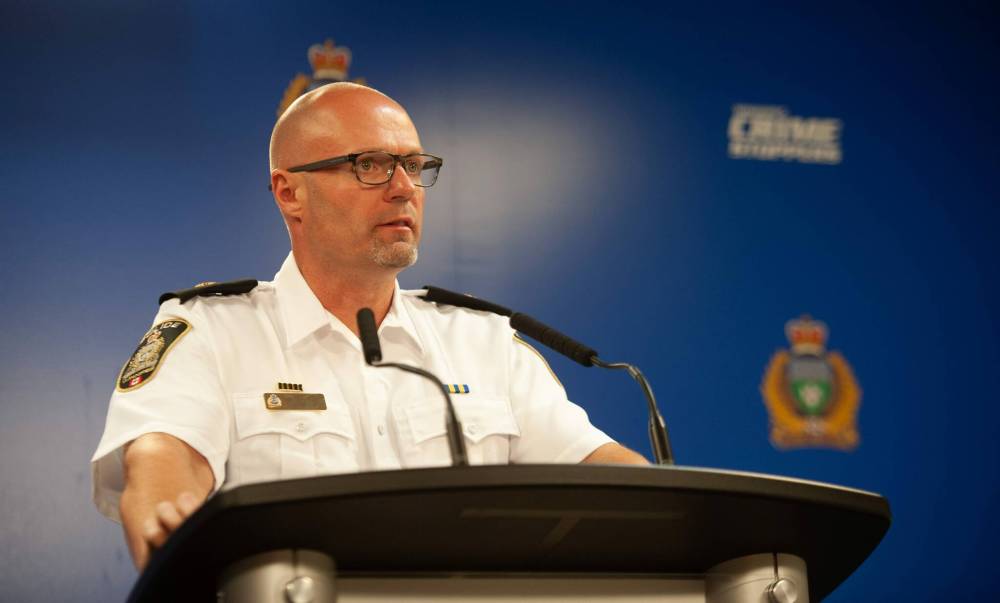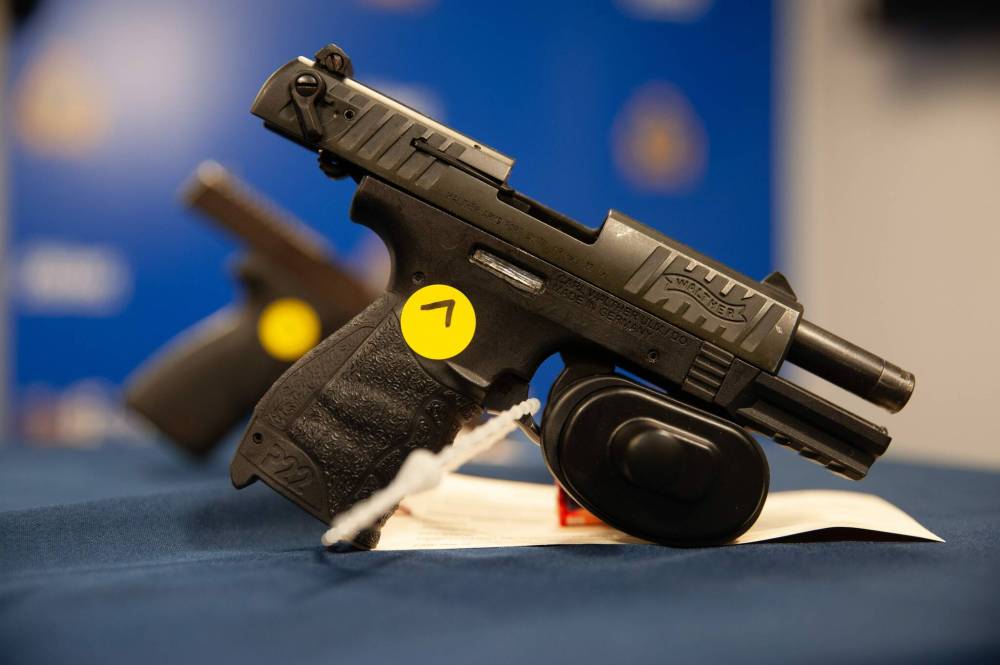City police boost effort to trace ‘crime guns’
Advertisement
Read this article for free:
or
Already have an account? Log in here »
To continue reading, please subscribe:
Monthly Digital Subscription
$0 for the first 4 weeks*
- Enjoy unlimited reading on winnipegfreepress.com
- Read the E-Edition, our digital replica newspaper
- Access News Break, our award-winning app
- Play interactive puzzles
*No charge for 4 weeks then price increases to the regular rate of $19.00 plus GST every four weeks. Offer available to new and qualified returning subscribers only. Cancel any time.
Monthly Digital Subscription
$4.75/week*
- Enjoy unlimited reading on winnipegfreepress.com
- Read the E-Edition, our digital replica newspaper
- Access News Break, our award-winning app
- Play interactive puzzles
*Billed as $19 plus GST every four weeks. Cancel any time.
To continue reading, please subscribe:
Add Free Press access to your Brandon Sun subscription for only an additional
$1 for the first 4 weeks*
*Your next subscription payment will increase by $1.00 and you will be charged $16.99 plus GST for four weeks. After four weeks, your payment will increase to $23.99 plus GST every four weeks.
Read unlimited articles for free today:
or
Already have an account? Log in here »
Hey there, time traveller!
This article was published 16/08/2022 (1209 days ago), so information in it may no longer be current.
Winnipeg police are increasing their capacity to trace illegal, unmarked firearms that are often trafficked into Canada from the United States and end up being seized on the streets of Winnipeg.
Insp. Elton Hall said the police service will purchase a ductless chemical work station for technicians to restore obliterated serial numbers on seized weapons. The province provided $17,000 through the criminal property forfeiture fund to purchase the station and to support training for technicians.
“Any firearm with its serial number obliterated is a crime gun and is a trademark of a smuggled or trafficked firearm used for criminal purpose,” Hall said at a news conference Tuesday morning.

ETHAN CAIRNS / WINNIPEG FREE PRESS
Insp. Elton Hall said the police service will purchase a ductless chemical work station for technicians to restore obliterated serial numbers on seized weapons.
Winnipeg police have seized 455 “crime guns” so far this year and have been able to successfully lift 79 numbers from those weapons. Last year, 859 guns were seized and 89 serial numbers were restored by the firearms investigative analysis section.
Hall said restoring destroyed serial numbers is labour intensive and uses highly technical chemical, physical and particle processes, but can interrupt firearms trafficking rings and advance criminal investigations across Canada and the United States.
Hall said police seized a number of handguns earlier this year and were able to restore some serial numbers, tracing the weapons back to Texas. One of the guns has been requested by Texas State Police for an ongoing investigation, Hall said.
By establishing a point of origin, investigators can build a timeline to determine when the gun arrived in Canada, if it was stolen, and if it was used in a crime in Winnipeg or elsewhere, Hall said.
More than half of the crime guns recovered by Winnipeg police are traced back to the United States, with the balance coming from other parts of Canada and some from Europe, he said.
Four officers recently completed training to trace crime guns in partnership with the United States government’s Bureau of Alcohol, Tobacco, Firearms and Explosives, Justice Minister Kelvin Goertzen said.
“Gun crime is an issue through North America and training and other law enforcement is an important opportunity for officers to learn and to ensure that they have the best tools, and understanding, and knowledge to be able to get these guns off of the streets,” he said.

ETHAN CAIRNS / WINNIPEG FREE PRESS
A gun which has been illegally trafficked into the city has its serial number scratched off to avoid easy tracking of the weapon on display at the police press conferance.
The minister said his department is working to expand crime gun analysis units to other police services in Manitoba and to link their work within the Manitoba Criminal Intelligence Centre.
Goertzen said the provincial government is also considering initiatives, including legislative changes, to restrict the availability of 3D-printed and other privately manufactured firearms in Manitoba.
“It’s an issue here, not to the level that it is in the U.S., but we want to be proactive,” Goertzen said. “We want to make sure, of course, we’re not capturing those law-abiding gun owners who are not using weapons for crimes, but for those who are trying to have untraceable guns for other reasons.”
danielle.dasilva@freepress.mb.ca

Our newsroom depends on a growing audience of readers to power our journalism. If you are not a paid reader, please consider becoming a subscriber.
Our newsroom depends on its audience of readers to power our journalism. Thank you for your support.


